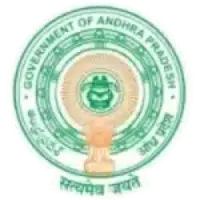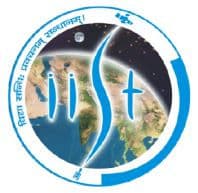Latest Applications Open 2024:
AP PGECET 2024 Metallurgical Engineering Syllabus has been Available now. The AP PGECET Metallurgical Engineering Syllabus is a comprehensive guide outlining the specific topics and subjects candidates must cover while preparing for the Andhra Pradesh Post Graduate Engineering Common Entrance Test (AP PGECET) in Metallurgical Engineering. This syllabus assesses candidates’ knowledge and proficiency in various aspects of metallurgy and materials science.
The syllabus covers various subjects, including materials science, physical metallurgy, mechanical metallurgy, extractive metallurgy, and more. It delves into the properties, behavior, and processing of metals and materials, providing a solid foundation for aspiring engineers in the metallurgical field.
Candidates are expected to study topics such as phase transformations, mechanical properties of materials, alloy design, corrosion, and various testing and characterization techniques. Additionally, the syllabus emphasizes the practical application of metallurgical principles in industries and research settings. Candidates should thoroughly review and understand the syllabus, ensuring they are well-prepared to tackle the examination’s questions and demonstrate their expertise in metallurgy.
AP PGECET 2024 Metallurgical Engineering Syllabus – Available
AP PGECET 2024 Metallurgical Engineering Syllabus has been Available now. Click to Download Syllabus PDF.
Engineering Mathematics
Engineering Mathematics is a fundamental branch of mathematics that plays a crucial role in various engineering disciplines. It provides the mathematical foundation for solving complex engineering problems and making informed decisions in engineering design, analysis, and research. Topics in engineering mathematics often include calculus, differential equations, linear algebra, probability, statistics, and numerical methods. Engineers use these mathematical principles to model physical phenomena, optimize processes, design structures, and develop innovative solutions. A solid understanding of engineering mathematics is essential for students and professionals in the field to excel in their work and contribute to technological advancements.
Linear Algebra: Matrices and Determinants, Systems of linear equations, Eigen values and Eigen vectors.
Calculus: Limit, continuity and differentiability; Partial Derivatives; Maxima and minima; Sequences and series; Test for convergence; Fourier series.
Vector Calculus: Gradient; Divergence and Curl; Line; surface and volume integrals; Stokes, Gauss and Green’s theorems.
Differential Equations: Linear and non-linear first order ODEs; Higher order linear ODEs with constant coefficients; Cauchy’s and Euler’s equations; Laplace transforms; PDEs – Laplace, heat and wave equations.
Probability and Statistics: Probability and sampling theorem, Conditional Probability, Probability Density Function, Mean, median, mode and standard deviation; Random variables; Exponential, Poisson, normal and binomial distributions; Correlation and regression analysis.
Numerical Methods: Solutions of linear and non-linear algebraic equations; integration of trapezoidal and Simpson’s rule; single and multi-step methods for differential equations.
Metallurgical Engineering
Metallurgical Engineering is a specialized field of engineering that focuses on the study of metals, their properties, production processes, and applications. It plays a vital role in various industries like manufacturing, aerospace, automotive, and more. Metallurgical engineers work to develop and improve materials, ensuring their quality and performance meet industry standards. They also explore innovative techniques for extracting, processing, and utilizing metals efficiently. This field is at the forefront of technological advancements and sustainable practices, making it a crucial discipline in shaping the future of materials science and engineering.
Thermodynamics and Rate Processes:
Laws of thermodynamics, activity, equilibrium constant, applications to metallurgical systems, solutions, phase equilibria, Ellingham and phase stability diagrams; thermodynamics of surfaces, interfaces and defects, adsorption and segregation; basic kinetic laws, order of reactions, rate constants and rate-limiting steps; principles of electrochemistry- single electrode potential, electro-chemical cells and polarizations, aqueous corrosion and protection of metals, oxidation, and high-temperature corrosion – characterization, and control; heat transfer – conduction, convection and heat transfer coefficient relations, radiation, mass transfer – diffusion and Fick’s laws, mass transfer coefficients; momentum transfer – concepts of viscosity, shell balances, Bernoulli’s equation, friction factors.
Extractive Metallurgy
Minerals of economic importance, comminution techniques, size classification, Flotation, gravity, and other methods of mineral processing; agglomeration, pyro- hydro- and electro-metallurgical processes; material and energy balances; principles and processes for the extraction of non-ferrous metals – aluminum, copper, zinc, lead, magnesium, nickel, titanium, and other rare metals; iron and steel making – principles, role structure and properties of slags, metallurgical coke, blast furnace, direct reduction processes, primary and secondary steelmaking, ladle metallurgy operations including deoxidation, desulphurization, sulfide shape control, inert gas rinsing and vacuum reactors; secondary refining processes including AOD, VAD, VOD, VAR, and ESR; ingot and continuous casting; stainless steel making, furnaces and refractories.
Physical Metallurgy
Crystal structure and bonding characteristics of metals, alloys, ceramics, and polymers; structure of surfaces and interfaces, nano-crystalline and amorphous structures; solid solutions; solidification; phase transformation and binary phase diagrams; principles of heat treatment of steels, cast iron, and aluminum alloys; surface treatments; recovery, recrystallization and grain growth; industrially important ferrous and non-ferrous alloys; elements of X-ray and electron diffraction; principles of scanning and transmission electron microscopy; industrial ceramics, polymers, and composites; the electronic basis of thermal, optical, electrical and magnetic properties of materials; electronic and optoelectronic materials.
Mechanical Metallurgy
Elasticity, yield criteria, and plasticity; defects in crystals; elements of dislocation theory – types of dislocations, slip and twinning, source and multiplication of dislocations, stress fields around dislocations, partial dislocations, dislocation interactions, and reactions; strengthening mechanisms; tensile, fatigue and creep behavior; super-plasticity; fracture – Griffith theory, basic concepts of linear elastic and elastoplastic fracture mechanics, ductile to brittle transition, fracture toughness; failure analysis; mechanical testing – tension, compression, torsion, hardness, impact, creep, fatigue, fracture toughness and formability.
Manufacturing Processes
Metal casting – patterns and molds including mold design involving feeding, gating and rising, melting, casting practices in sand casting, permanent mold casting, investment casting, and shell molding, casting defects and repair; hot, warm, and cold working of metals, Metal forming – fundamentals of metal forming processes of rolling, forging, extrusion, wire drawing and sheet metal forming, defects in forming; Metal joining – soldering, brazing and welding, common welding processes of shielded metal arc welding, gas metal arc welding, gas tungsten arc welding, and submerged arc welding; welding metallurgy, problems associated with the welding of steels and aluminum alloys, defects in welded joints; powder metallurgy; NDT using dye-penetrant, ultrasonic, radiography, eddy current, acoustic emission, and magnetic particle methods.

As a dedicated Biology Science graduate, I’m passionate about sharing the latest updates in national and state entrance exams through my blog. I aim to keep aspiring students informed about exam trends, important dates, and changes in syllabi. With a keen interest in education, I strive to offer valuable insights for students navigating the competitive landscape of entrance examinations and admission tests. Stay updated with me.


